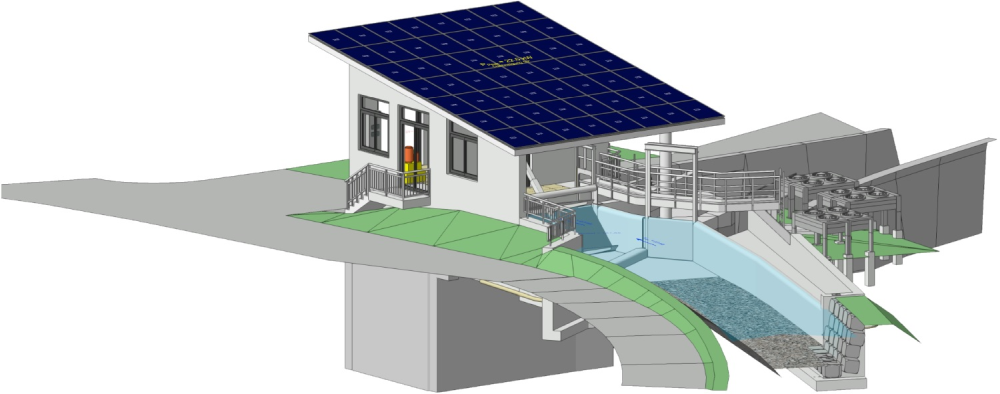| Duration: | 09/2024 - 08/2028 |
| Contracting Authority/ Sponsors: | Project Management Agency: Forschungszentrum Jülich GmbH (PT-J.ESN3) Sponsor: Federal Ministry of Economic Affairs and Climate Action (BMWK.IIB5) |
| Project Partners: | tewag Technologie – Erdwärmeanlagen – Umweltschutz GmbH; Uhrig Energie GmbH; COMBITHERM Apparate- und Anlagenbaugesellschaft mbH; Helmholtz Zentrum für Umweltforschung UFZ; Deutsche Vereinigung für Wasserwirtschaft, Abwasser und Abfall e. V.; AGFW-Projektgesellschaft für Rationalisierung, Information und Standardisierung mbH |
| Website: | Verbundvorhaben – EnEff: Wärme: FluSeeQ |
| Project Focus: | |
FluSeeQ /flüssig/
Utilization of thermal potentials of surface waters through heat extraction by means of resilient regulation and new technology for source tapping

In the long term, environmental heat from lakes and rivers will be an important source of energy. However, Germany has so far lacked a consistently developed environmental regulatory framework and targeted technical solutions based on this.
In the “FluSeeQ” project, the water systems are to be structured in terms of their thermo-ecological properties, the technically and economically optimal solutions are to be developed for different performance classes, taking into account the respective ecological requirements, and the potential that can be tapped for Germany is to be derived on this basis.
The use of environmental heat by means of large heat pumps is assigned a decisive role in the BMWK's long-term scenarios. In order to tap this potential from rivers and lakes in Germany, there has so far been a lack of consistently developed environmental regulatory frameworks and targeted technical solutions based on them.
The approach pursued in the R&D project is the first to provide a scientifically sound and structured procedure in which the fields of engineering, economics, environmental and legal sciences relevant to comprehensive assessment work together in an iterative process. To this end, the water systems are to be structured in terms of their thermo-ecological properties, the technically and economically optimal solutions are to be developed for different performance classes, taking into account the respective ecological requirements, and the potential that can be tapped for Germany is to be derived on this basis.
The approach is underpinned by the engineering and scientific development of generic feasibility studies, which provide design points for existing hydraulic engineering infrastructure and the associated typical characteristics of watercourses. Different technical solutions are being developed in parallel and analyzed by the scientific partners, which are adapted to the respective regulatory/safety requirements as well as the ecological and technical framework conditions in the different water systems. In addition to classic systems with an intermediate circuit, the industrial consortium is developing modular solutions based on water as a refrigerant under an oil-free compressor design and transferring these into a demonstrator so that this technology can already intrinsically ensure a high degree of intrinsic safety, particularly with regard to environmental regulatory requirements.